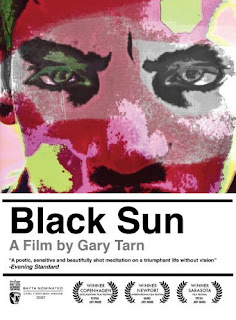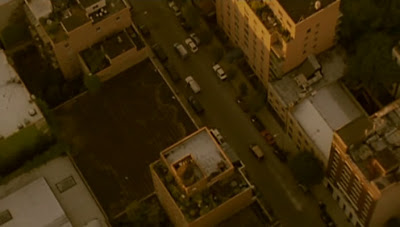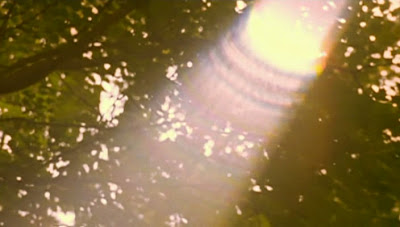English | Subs: Castellano/English
70 min | XviD 704x384 (16:9) | 1500 kbps | 224 kbps AC3 | 25 fps
70 min | XviD 704x384 (16:9) | 1500 kbps | 224 kbps AC3 | 25 fps
850 MB + 3% recuperación
http://www.imdb.com/title/tt0478101/
In 1978, Hugues de Montalembert, a French filmmaker and painter living in New York City, was attacked by two men on the way back to his apartment. During the struggle, paint thinner was thrown into his eyes by one of his assailants, scarring and blinding him for the rest of his life. For many, the story would have ended right there. For Hughes, it was just the beginning.
En 1978, Hugues de Montalembert, director y pintor francés residente en Nueva York, fue atacado por dos hombres al regresar a su departamento. Durante la lucha, uno de los asaltantes le echó removedor de pintura a los ojos, a consecuencia de lo cual perdió la vista. Para muchos, la historia hubiera terminado ahí. Para Hughes, eso fue sólo el comienzo.
Ainsi, par les yeux, l'amour atteint le coeur,
Car les yeux sont les guides du coeur,
Ils se mettent en quête
De ce que le coeur souhaiterait posséder.
Car les yeux sont les guides du coeur,
Ils se mettent en quête
De ce que le coeur souhaiterait posséder.
It might have been written 800 years ago but this sensual declaration by troubadour Guiraut de Bornelh catches precisely the primary intentions of this remarkable new British film, an extraordinary essay on the epiphanies of looking. In 1978, French artist Hugues de Montalembert, enjoying great success in New York, was mugged in an acid attack and lost his sight. Astonishingly, within a matter of months, he was travelling alone to Indonesia, reversing all expected responses to an assault that, in a single corrosive moment, destroyed his profession and vocation, while threatening the foundations of his identity and humanity.
In a feature-length voiceover, the artist reveals the inevitable despair that initially ensued, but then moves into an emotionally and philosophically charged celebration of being alive in the phenomenal world. A remarkable statement of personal resistance, it is accompanied by a river of images, of cities and landscapes – the locations visited by de Montalembert – that deploy a lyrical but grounded visual language similar to that of work by Jonas Mekas, Peter Mettler and, most relevantly, Chris Marker, with Sans Soleil. But this project is no pastiche of influences. Entirely Gary Tarn’s film, Black Sun never seeks easy illustration of its subject’s journey, physical or otherwise; rather, it catches the luminous materiality of the seen as a means to the most searching spiritual enquiry.
In a feature-length voiceover, the artist reveals the inevitable despair that initially ensued, but then moves into an emotionally and philosophically charged celebration of being alive in the phenomenal world. A remarkable statement of personal resistance, it is accompanied by a river of images, of cities and landscapes – the locations visited by de Montalembert – that deploy a lyrical but grounded visual language similar to that of work by Jonas Mekas, Peter Mettler and, most relevantly, Chris Marker, with Sans Soleil. But this project is no pastiche of influences. Entirely Gary Tarn’s film, Black Sun never seeks easy illustration of its subject’s journey, physical or otherwise; rather, it catches the luminous materiality of the seen as a means to the most searching spiritual enquiry.
Así pues por los ojos llega al corazón el amor,
Pues son los ojos guías del corazón,
Salen a la búsqueda
De aquello que quisiera el corazón poseer.
Aun escrita hace ochocientos años, esta sensual declaración del trovador Guirault de Bornelh, describe precisamente las intenciones esenciales de este nuevo film británico, un extraordinario ensayo sobre las epifanías de la mirada. En 1978, el artista francés Hugues de Montalembert, que gozaba de gran éxito en Nueva York, fue herido en un asalto y perdió la vista. Sorprendentemente, en cuestión de meses, estaba viajando solo por Indonesia, desmintiendo todas las reacciones esperables ante un asalto que, en un instante, había destruido su profesión y su vocación, amenazando al mismo tiempo los fundamentos de su identidad.
A lo largo de todo el film, en voz over, el artista narra su inevitable desesperación inicial, pero luego deriva hacia una emotiva y filosófica celebración de la vida en el mundo sensible: una notable afirmación de la resistencia personal que va acompañada de un flujo de imágenes, de ciudades, y de paisajes -las localidades visitadas por de Montalembert- que despliega un lenguaje visual lírico pero al mismo tiempo concreto, similar al de la obra de Jonas Mekas, Peter Mettler y, más significativamente, Chris Marker, con Sans Soleil. Pero este proyecto no es un pastiche de influencias. Obra enteramente de Gary Tarn, Black Sun nunca busca convertirse en una fácil ilustración -física o de otro tipo- del viaje de su protagonista; capta más bien la materialidad luminosa de lo visto como instrumento para la más aguda indagación espiritual.
Documental británico un tanto hipnótico descubierto en un festival hace ya unos años, y luego amablemente compartido por pa6sur y cabiria en KG. Subtítulos castellanos de un servidor.
BlackSun.part1.rar
http://www50.zippyshare.com/v/RSc281rE/file.html
BlackSun.part2.rar
http://www50.zippyshare.com/v/vzQyrvR9/file.html
BlackSun.part3.rar
http://www50.zippyshare.com/v/DaUAkayy/file.html
BlackSun.part4.rar
http://www50.zippyshare.com/v/7qS6C8GJ/file.html
BlackSun.part5.rar
http://www50.zippyshare.com/v/H1h9TecC/file.html








Comentarios
Publicar un comentario